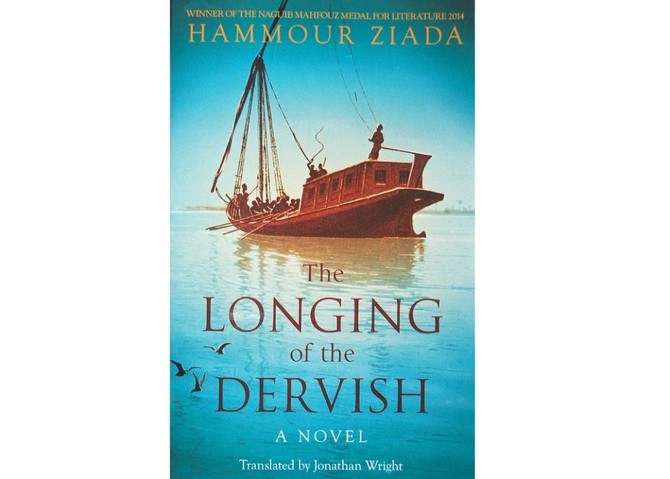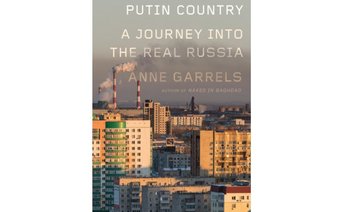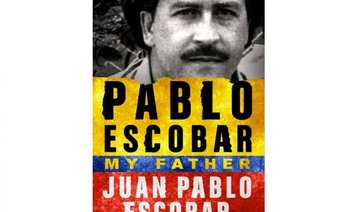“The Longing of the Dervish” by Hammour Ziada is a captivating historical novel set in 19th century Sudan during the uprising of a Sudanese religious leader who declared himself as the Mahdi — or guided one — against the Ottoman Empire and the English-Egyptian government in Cairo. The book was first published in Arabic in 2014 and was shortlisted for the International Prize for Arabic Fiction in 2015. In 2016, it was translated into English by Jonathan Wright, an award-winning translator.
The reader is quickly introduced to Bakhit Manzil, a Sudanese man from the city of Omdurman and an ex-soldier of the religious leader’s army, who has just been released from prison in Khartoum. Although the shackles are off his feet, Manzil’s freedom is bittersweet.
“Freedom had come to them with the warships and cavalry of the invaders. It was September 1898 and the Egyptian army had entered the country. The Mahdist state was defeated,” an excerpt from the book reads.
Instead of feeling free, Manzil is full of thoughts of revenge. His freedom is tainted and as he passes through the streets of Omdurman, he no longer recognizes the city due to the smell of gunpowder and the bodies on the roadside. Manzil is on a mission and he will not rest until he succeeds in ending the lives of those who ended the life of his beloved.
“If he had succumbed to weakness he would have died years ago, but a man with a debt to love never dies,” the book reads.
Manzil’s story is revealed in flashbacks of his past — from the time he was a slave working for the Europeans, to his bout as a soldier in the Mahdi’s army, to his experience as a slave to the Egyptians and finally as a man who was deeply in love with a woman who neither acknowledged his love nor admitted that her feelings matched his. She who had captured his heart was named Theodora, a woman of Greek origin born in Alexandria, Egypt, who moved to Khartoum to serve as a teacher at a missionary school.
The pair meet in the market in Khartoum, he the tall and slim slave of an Egyptian master and she the beautiful Christian with chestnut hair. However, their acquaintance is doomed from the start as Khartoum undergoes political change and transforms into an unlikely power.
The novel is multifaceted and the history and politics of Khartoum in the late 19th century severely complicated. While at the heart of Ziada’s book is a beautiful and complex love story, surrounding the romance is a country undergoing deep political, religious and social change.
Ziada’s book is brimming with picturesque scenes of camel caravans carrying missionaries to their churches in Khartoum, turbaned men and desert guides, cityscapes surrounded by mango, lime and guava trees and colorful birds flitting through streets and bazaars filled with men who don fezzes and women who wash their clothes in the waters of the Nile. Ziada writes beautifully of the landscape and the atmosphere surrounding the uprising of the Mahdi. Ziada’s characters live during a significant time, witnessing the power struggle in North Africa between the Turkish, Egyptian and European powers.
The events in Khartoum at this time are as dramatic as the love story told throughout Ziada’s book. During the uprising of the Mahdi, “everyone remembered the English pasha who had been sent by Cairo some years earlier to fight the Mahdi. The Mahdi’s soldiers killed him in his uniform on the steps of the palace in Khartoum.”
Through stories of the thriving slave trade, Ziada also manages to reveal how deep-rooted racial discrimination was in 19th century North Africa. His book is relevant to the world today, the people and places belong to a different time but the ideology and mentality behind power and human hierarchy remain the same.
Across cultures, religions and races, the reader gets a picture of tolerance, intolerance, prejudice and fear in the region. When the time comes for the Europeans to escape the Mahdi’s army, they say: “This is my country. I’ve forgotten any language other than the Arabic that the people speak here.”
At some points, Ziada’s book shifts tone from the revengeful Manzil to the discoveries of a new and magical land that Theodora and her missionaries arrive in. While there are many things that surprise her and may even seem unpleasant, Theodora grows to love it despite the autumn storms and the strange local traditions.
Ziada’s story encompasses the lives of not just Manzil and Theodora, but everyone — the missionaries, the soldiers of the Mahdi’s army and the inhabitants of Sudan — as they ride the waves of history. Sudan, at the time, did not belong to the people who lived within its borders, but to power and to anyone who was brave enough to fight for it. Many, like Manzil and others, joined military campaigns to avoid starvation, but that starvation was always hot on their heels as military campaigns began and inevitably ended. It was love for other people and the country that kept many moving forward. For Manzil, however, it was love for Theodora.
Ziada’s book is full of history, hope, magic, love and torment and tells an important story that deserves to be heard.
Book Review: A bittersweet Sudanese story of history and hope
Book Review: A bittersweet Sudanese story of history and hope

What We Are Reading Today: The Correspondence

- During this period, Thoreau was well established as a writer and lecturer, and he continued to pursue the interests and activities that had occupied him earlier in the 1850s
Author: Henry David D. Thoreau
This is the third and final volume of the first full-scale scholarly edition of Thoreau’s correspondence in more than half a century. Together, the volumes present every known letter written or received by Thoreau, almost 650 in all, including more than 100 that have never been published before.
“Correspondence 3: 1857–1862” contains 239 letters, 121 written by Thoreau and 118 written to him. Sixty-seven letters are collected here for the first time; of these, 44 have not been published before, including five dated between 1837 and 1855 that are included in an addenda.
During this period, Thoreau was well established as a writer and lecturer, and he continued to pursue the interests and activities that had occupied him earlier in the 1850s.
Letters document the publication of “Chesuncook” (1858) and “An Address on the Succession of Forest Trees” (1860), as well as his preparations, a few months before his death, for the posthumous publication of “The Maine Woods “ and the essays “Walking,” “Autumnal Tints,” “Wild Apples,” and “Life without Principle.”














